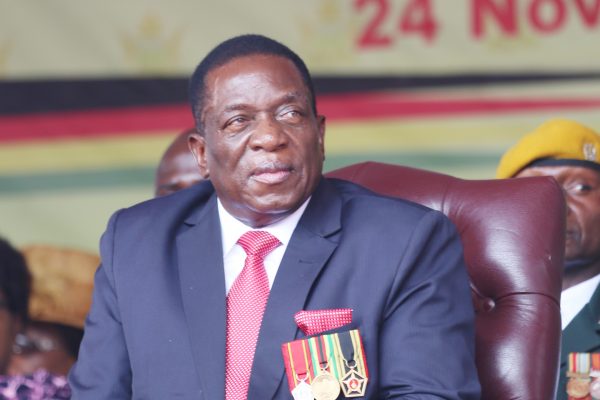
PRESIDENT Emmerson Mnangagwa has been forced to drop some members of his new Cabinet before they could be sworn in after he appointed more than the stipulated five ministers from outside Parliament.
BY OBEY MANAYITI
The blunder drew fire from the opposition, which said it exposed the president’s advisors as incompetent.
Former Primary and Secondary Education minister Lazarus Dokora was the biggest causality of the reshuffle as he was replaced by his deputy, Paul Mavima.
War Veterans leader Christopher Mutsvangwa, who was announced as the Information minister on Thursday is now an advisor to the president.
Mnangagwa’s spokesperson George Charamba yesterday told The Standard the Information portfolio remained vacant for now. Academic Clever Nyathi, a technocract and non-MP, who had been appointed Labour and Social Welfare minister, was made an advisor to Mnangagwa on national peace and reconciliation.
Joshua Teke Malinga, previously appointed as a deputy minister, was made a special advisor to the president on disability issues.
“Following an earlier announcement made by the chief secretary to the President and Cabinet on appointments to the government, the following adjustments have been made to ensure compliance with the Constitution and considerations of gender, demography and special needs,” Sibanda said in a statement.
- Chamisa under fire over US$120K donation
- Mavhunga puts DeMbare into Chibuku quarterfinals
- Pension funds bet on Cabora Bassa oilfields
- Councils defy govt fire tender directive
Keep Reading
Mnangagwa had appointed eight non-legislators including Air Marshal Perrance Shiri (Lands), Major General Sibusiso Moyo (Foreign Affairs), Victor Matemadanda (deputy minister War Veterans), July Moyo (Local Governnment), Winston Chitando (Mines) and Amon Murwira (Higher Education), among others.
MDC-T chief whip Innocent Gonese said Sibanda must be held accountable for the boob.
“Firstly, he told us that the president had dissolved Cabinet when it was already a fait accompli by operation of the law,” he said.
“Now he gets the president to be embarrassed by failing to advise that only a maximum of five members of the executive can be appointed from outside Parliament,” Gonese posted on his Facebook page.
“Of course, the president and his own advisors should have known better as it is a simple provision to read and does not even need a legal mind.
“But the chief secretary must carry his cross and do the honourable thing by resigning or else be relieved of his duties for sheer incompetence and monumental boobs.”
Dewa Mavhinga, a political analyst, said the mistake was worrying, adding Mnangagwa’s rule might not be different from that of former president Robert Mugabe.
“Mnangagwa’s administration has been marked by sloppiness, but the greatest danger is not incompetence but rather the militarisation of government,” he said.
“Chances are that he will continue with Mugabe’s legacy.
“They are saying Operation Restore Legacy and the objective of Mnangagwa and the soldiers is that they are putting back the vintage Zanu PF that is responsible for all the problems in the country,”
University of Zimbabwe political science lecturer Eldred Masunungure said there was no justifiable excuse for the oversight considering that Mnangagwa was a trained lawyer.
“The appointment of more people speaks to lack of meticulousness on checking on the Constitution and the legality part of it,” he said.
“Perhaps he was overwhelmed by pressure from various stakeholders. Luckily, the error was quickly realised before the ministers were sworn in.”
Philani Moyo, the Fort Hare Institute of Social and Economic Research director said the blunder was a wakeup call for the new president.
“As the appointing authority, President Mnangagwa made a glaring legal blunder when he appointed more than five unelected people as Cabinet ministers,” he said.
“While he has acknowledged and immediately rectified this constitutional violation, questions are rightfully being asked about his attention to fine legal detail when making crucial executive appointment decisions.
“However, it would be naive to use this legal blunder to prejudge his performance as president in the coming months of his tenure.”
Meanwhile, Mutsvangwa told The Standard in an exclusive interview that Mnangagwa tried to include opposition MPs in his Cabinet but faced resistance.
“The various political parties intervened and deterred President Mnangagwa from choosing his preferred candidates for Cabinet posts,” he said. “They surreptitiously fought for a government of national unity instead of inclusivity.”
Mnangagwa’s first Cabinet was criticised by opposition parties that described it as recycled deadwood and as not inclusive enough.
The new ministers will be sworn in tomorrow.
(Please read Mutsvangwa’s interview on Page 6).











